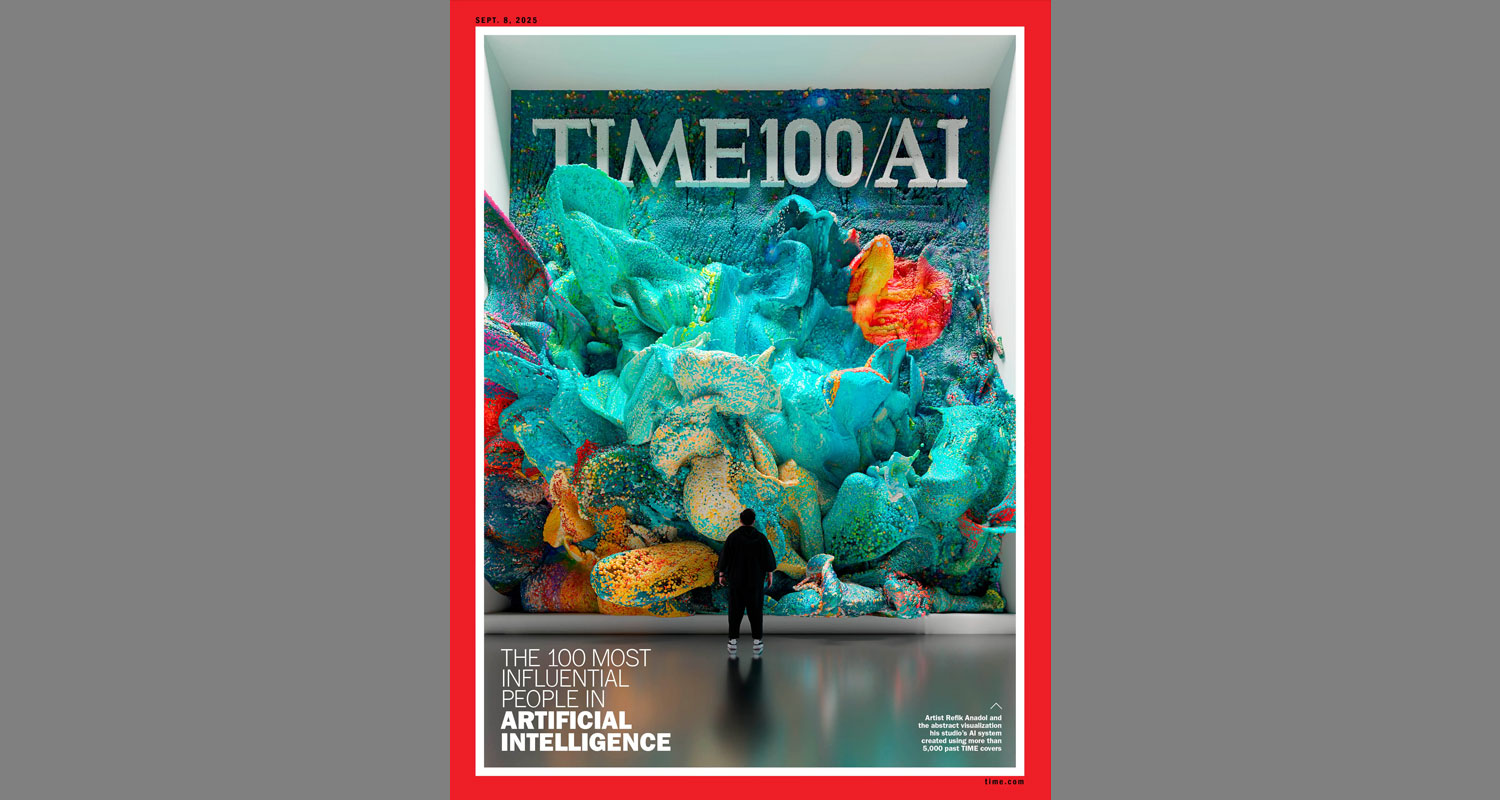Benjamin Rosman, founding director of the Wits University Machine Intelligence and Neural Discovery (Mind) Institute, has been named by Time magazine as one of the 100 most influential thinkers in AI for 2025.
Time said on Rosman: “[He] is tired of being asked about the ‘African angle’ on artificial intelligence. That’s not because he has nothing to say – a professor of computer science and applied maths at Wits University in South Africa, Rosman co-founded both the Deep Learning Indaba, an annual gathering for Africa’s AI community, and Lelapa AI, a company developing AI for African languages – but because he rejects the assumption that Africa can only contribute to the field by building applications or contributing data. ‘It’s like, screw you,’ he says. ‘What’s the unique American angle on AI?’”
Speaking to TechCentral in an interview on Tuesday, Rosman said South Africa is in a unique position in that it can play on a par with other leading nations in the development of artificial intelligence while also helping shape the technology’s direction.
“It is not clear that the right thing to do is to take someone else’s technology, build a layer on top of it that does the adaptation, and then use it like that,” said Rosman. “In many cases, we want it built to purpose from the ground up. If there are problems, we need people to understand why things aren’t working, why they are working when they do, or when it is appropriate to use certain tools and not others.”
Rosman added that an overreliance on offshore technology results in money flowing out of the country, which does not benefit the local economy. Similarly, recent geopolitical events such as the global tariff war initiated by US President Donald Trump expose the risk that an overreliance on foreign technology poses to local businesses.
Rosman founded Wits Mind Institute in the hope of creating a central place for AI research in Africa. Although a third of Mind’s research fellows are computer scientists, there are also neuroscientists, neuroanatomists, behavioural psychologists, philosophers, artists and policymakers.
Mix of expertise
According to Rosman, the idea behind fostering an eclectic mix of expertise is to explore intelligence in many its facets – including its human, animal and machine variants – to produce research that “explores new directions” by applying “radically new ideas” to solve problems in novel ways.
Google on Tuesday announced it would support the Mind Institute with a US$1-million grant. Rosman said the funds will be used to expand Mind’s research capabilities by adding more academics, students and projects.
“It’s amazing to get the support from Google, and really what this is about is all the amazing things that happen once you have a critical mass. Our work is experimental; we took some amazing people, put them in a box and see what magic comes out of it. This grant is about making that box bigger.”
Read: Haibo! AI language models for Zulu and Sotho in the works
Rosman believes observing AI through different lenses has the potential to address many of the limitations of large language models (LLMs).
“Until recently, we knew of nothing else capable of writing an essay other than a human. Now we have LLMs that can do it, but they use different mechanisms. A machine will never get tired and has quick access to all human knowledge.
 “On the other hand, humans are far more efficient. We don’t need data centres and [our brains] run on the wattage of a lightbulb – we can solve the same problem by eating a banana or a sandwich. Maybe we can take inspiration from different types of intelligence to build more efficient models,” said Rosman.
“On the other hand, humans are far more efficient. We don’t need data centres and [our brains] run on the wattage of a lightbulb – we can solve the same problem by eating a banana or a sandwich. Maybe we can take inspiration from different types of intelligence to build more efficient models,” said Rosman.
Other than efficiency, building technologies that are better suited to the African context is a key priority for the Mind Institute. One example of this is a company called Lelapa AI, which Rosman also founded, which creates LLMs for African indigenous languages. TechCentral last year spoke to Lelapa chief technology officer Jade Abbot to learn more about the company – read the interview here.
The Mind Institute is working to increase its engagement with industry and the public to broaden its ecosystem and attract a wider range of expertise. One such initiative is an upcoming seminar series on AI and an AI literacy programme.
“If you are building some of the core technologies, there are bigger opportunities around commercialisation, and we want into tap into those. We need to encourage entrepreneurship around this technology because this is how we change the status quo regarding the problems we face in this country,” said Rosman. – © 2025 NewsCentral Media
Get breaking news from TechCentral on WhatsApp. Sign up here.



